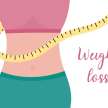Will Weight Loss Lower Cholesterol? Understanding the Connection and How to Achieve Optimal Health
Losing Weight Can reduce Cholesterol!
Cholesterol is a substance that's vital for the body's normal functioning, yet having high cholesterol levels can be detrimental to health, leading to cardiovascular diseases and other health issues. Weight loss is often recommended as a strategy to improve cholesterol levels, but how effective is it? This article explores the relationship between weight loss and cholesterol, providing practical insights to help you manage and improve your cholesterol levels.
What is Cholesterol?
Cholesterol is a waxy, fat-like substance found in all cells of the body. It is essential for producing hormones, vitamin D, and substances that help digest foods. However, cholesterol levels must be kept within a healthy range to prevent health problems. Cholesterol travels through the bloodstream in two types of lipoproteins:
Low-Density Lipoprotein (LDL): Often referred to as "bad" cholesterol, LDL can build up on the walls of arteries, leading to atherosclerosis, a condition that increases the risk of heart disease and stroke.
High-Density Lipoprotein (HDL): Known as "good" cholesterol, HDL helps remove LDL cholesterol from the arteries, transporting it back to the liver, where it can be processed and eliminated from the body.
The Link Between Weight and Cholesterol
Excess body weight, particularly abdominal fat, is associated with higher levels of LDL cholesterol and lower levels of HDL cholesterol. Several mechanisms explain this relationship:
Increased LDL Production: Excess body fat, especially visceral fat around the organs, can lead to increased production of LDL cholesterol by the liver.
DecrHDL Levels: Obesity can result in lower HDL cholesterol levels, reducing the body's ability to remove LDL cholesterol from the bloodstream.
Insulin Resistance: Excess weight is often linked to insulin resistance, a condition where the body's cells don't respond effectively to insulin. Insulin resistance can increase triglyceride levels and reduce HDL cholesterol levels, worsening the cholesterol profile.
Inflammation: Obesity is associated with chronic inflammation, which can negatively impact cholesterol metabolism and contribute to higher LDL levels.
How Weight Loss Can Improve Cholesterol Levels
Reduction in LDL Cholesterol: Weight loss, particularly through a combination of diet and exercise, can lead to a reduction in LDL cholesterol levels. Losing even a modest amount of weight, such as 5-10% of your body weight, can significantly lower LDL levels.
Increase in HDL Cholesterol: Weight loss can help increase HDL cholesterol levels. Regular physical activity, in particular, has been shown to boost HDL levels, further promoting cardiovascular health.
Lowering Triglycerides: Weight loss can also reduce triglyceride levels, a type of fat found in the blood. High triglyceride levels are often linked to low HDL and high LDL levels, so reducing triglycerides can improve overall cholesterol balance.
Improved Insulin Sensitivity: Losing weight improves insulin sensitivity, which can help normalize cholesterol levels and reduce the risk of developing type 2 diabetes.
Practical Tips for Weight Loss and Cholesterol Management
Adopt a Heart-Healthy Diet: Focus on a diet rich in fruits, vegetables, whole grains, lean proteins, and healthy fats. Incorporate foods high in soluble fiber, such as oats, beans, and legumes, which can help lower LDL cholesterol. Limit saturated fats, trans fats, and dietary cholesterol found in red meat, full-fat dairy products, and processed foods.
Increase Physical Activity: Aim for at least 150 minutes of moderate-intensity exercise, such as brisk walking or cycling, per week. Incorporate strength training exercises at least two days a week. Regular exercise can help with weight loss and improve cholesterol levels.
Monitor Portion Sizes: Be mindful of portion sizes to avoid overeating. Eating smaller, more frequent meals can help control hunger and maintain steady energy levels.
Stay Hydrated: Drinking adequate water is essential for overall health and can aid in weight loss. Sometimes, thirst is mistaken for hunger, leading to unnecessary calorie consumption.
Limit Alcohol Consumption: Excessive alcohol intake can raise cholesterol levels and contribute to weight gain. Limit alcohol consumption to moderate levels, defined as up to one drink per day for women and up to two drinks per day for men.
Quit Smoking: Smoking lowers HDL cholesterol and is a major risk factor for heart disease. Quitting smoking can improve HDL levels and overall heart health.
Reduce Stress: Chronic stress can contribute to weight gain and negatively impact cholesterol levels. Incorporate stress-reducing activities into your routine, such as meditation, yoga, deep breathing exercises, or spending time in nature.
Get Enough Sleep: Poor sleep quality and duration are linked to weight gain and high cholesterol levels. Aim for 7-9 hours of quality sleep each night to support overall health and well-being.
Seek Professional Guidance: Consider consulting with healthcare professionals, such as dietitians, nutritionists, or fitness trainers, for personalized guidance and support. They can help create a tailored plan to achieve and maintain a healthy weight and improve cholesterol levels.
Conclusion
Weight loss is a powerful strategy for improving cholesterol levels and enhancing overall cardiovascular health. By adopting a healthy lifestyle that includes a balanced diet, regular physical activity, and stress management, you can achieve and maintain a healthy weight, thereby reducing your risk of high cholesterol and related complications. Remember, even modest weight loss can make a significant difference in your cholesterol profile and overall well-being. Taking small, consistent steps towards a healthier lifestyle can lead to lasting benefits and a better quality of life.
About the Creator
SlimSuccess
SlimSuccess helps you achieve weight loss goals with science-backed strategies. Get expert advice, nutritious recipes, effective workouts, and motivational support. Transform your life, reach your fitness goals, and discover a healthier,
Enjoyed the story? Support the Creator.
Subscribe for free to receive all their stories in your feed. You could also pledge your support or give them a one-off tip, letting them know you appreciate their work.







Comments
There are no comments for this story
Be the first to respond and start the conversation.